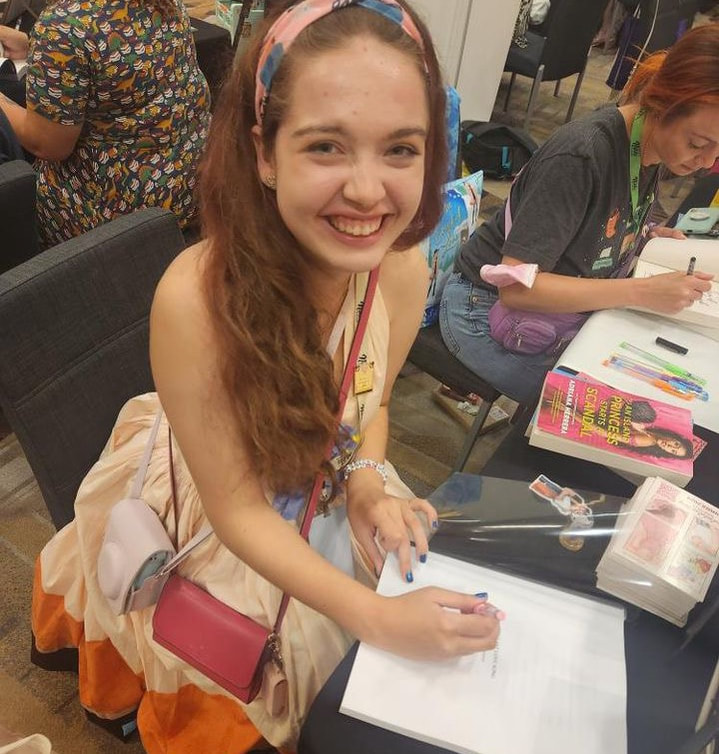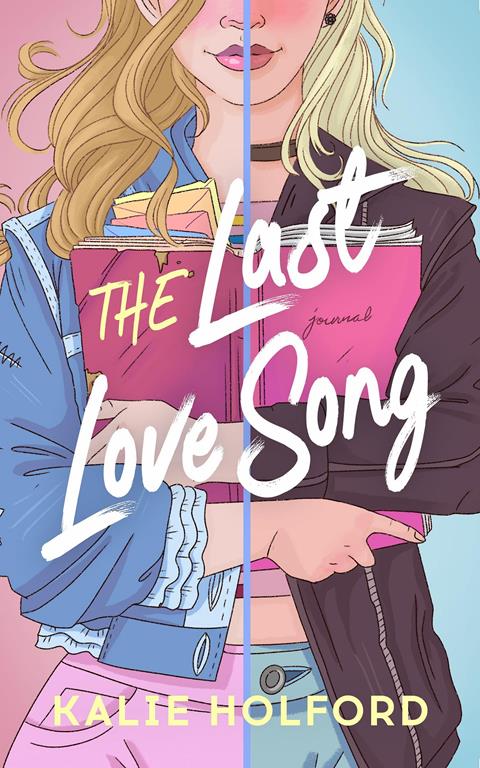We follow our main character Mia through her journey of discovering who her deceased rock star of a mother was, in a town that is dedicated to her. Despite her mother’s esteem, no one seems to be open to talking about the great Tori Rose with Mia. It isn’t until Mia receives her graduation present — a scavenger hunt left by her mom — that she begins to understand who her mother was. Mia follows clues, all linked to lyrics of her mother’s songs, to find pages of a lost journal. She doesn’t have long to piece together the clues before her best friend and crush, Britt, goes on her own musical journey, touring her way to Nashville; a tour which Mia is being pressured to come along on.
The novel spins off the classic Mamma Mia! plot by having the mystery be Mia’s mother, and Mia’s lost connection to her. Which, in theory, is a great take — if she wasn’t also estranged from her father. Throughout the novel there are sporadic mentions of who her father could be. In the end, the reveal felt rushed, holding little to no weight for the story. As a reader, I was not emotionally attached to who her father is. In fact, that’s a main problem throughout the book: there’s little room for emotional attachment to a majority of the characters, especially Mia. This is mainly because the situation doesn’t feel realistic and neither do the characters. The reader isn’t given enough time to relate to characters or get to know them.
A great aspect of the book was the subtle, yet realistic 2SLGBTQIA+ representation. Mia herself being openly bisexual and shown to have been in relationships with both genders all felt very realistic. She is also raised by her two grandmothers who struggled with not being legally married for a large part of their relationship. As well, Britt has a non-binary identifying parent, who isn’t a large part of the story, but is still there.

The middle of the book becomes repetitive to the point where the start of each chapter feels like Groundhog Day (1993) with the opening page stating the same things we already know. This repetition bogs down the second act, making it a slow read, even though the entire story takes place in the span of a week: a week in which Mia decides to not decide and becomes a very passive character.
However, the story is revived through lost journal entries from Mia’s mother; they were definitely the best parts of the book. The story of Tori Rose feels fresher and more vibrant when compared to Mia’s story. Where Mia is a passive character, Tori is active, her plot moving along at a steady pace. A part of me wished the entire book was from the perspective of Tori. Unfortunately, her narrative was wrapped up far too quickly to give room for Mia’s story, which I think was an injustice to Tori.
The stakes don’t feel incredibly high for Mia throughout the novel. Why does Mia have to decide on big decisions, like whether or not to pursue music right now? What exactly is it that’s stopping her from joining Britt and “The Lost Girls” on tour later in the summer? And looking past just this one summer, what is the rush for Mia to find herself? Perhaps these complications would have felt make or break if Mia was older and felt more stuck in her life, rather than when she’s just graduating high school. Mia’s character has so much potential, and the story could have leaned more heavily on exploring the pressure she felt and the internal turmoil.
The narrative push — that you have to figure out what you’re going to do with your life as soon as you get out of high school — feels counterintuitive to Mia’s internal journey and the novel’s target audience of young adults. I’m not sure where all this internal pressure came from for Mia; it’s only ever hinted at, but never shown throughout the book. Even her mother’s journey appeared more direct, but far less pressured.
One of Holford’s strengths lies in writing emotionally charged scenes, like when Mia finds her mother’s missing guitar, or when Mia and Britt fight. The reader can feel the toll that is not knowing someone who you are biologically entwined with — a person you feel like you should inherently know.
We can only hope to see more from Holford. If you want to read The Last Love Song for yourself, it’s available at Indigo and on Amazon. And, if you’re an aspiring author, take the leap and write that book — whether or not it gets published.


